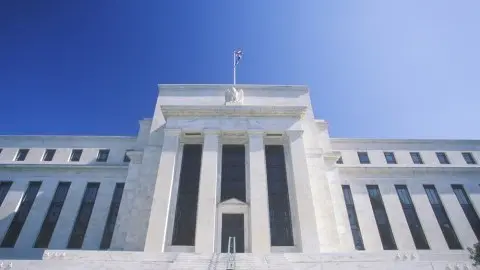Swiss National bank: Doves remain silent
The Swiss central bank decided today to keep its monetary policy unchanged and leave the main policy rate at -0.75%. It has reiterated its willingness to intervene in the foreign exchange market if it proves necessary
No change in monetary policy
The monetary policy assessment was not fundamentally different from that of March. In its text, the central bank was not really more "dovish" than the last meeting, unlike other big central banks like the Federal Reserve and the European Central bank. It still considers that the Swiss franc is "highly valued" and has not really changed its analysis of the macroeconomic situation. The Swiss central bank considers that downside risks are greater than at the March meeting but it did not change its forecast for GDP growth. It has slightly changed its inflation forecast for 2020 (upwards) and for 2021 (downward), but not enough to signal a change of course.
We will probably have to wait for the next economic cycle to see the Swiss central bank raising rates, which means not before 2023
The only change in monetary policy is more a technical change: the SNB has changed the reference rate for its monetary policy. If it was basing itself on the 3-month Libor, it stopped that because the future of the 3-month Libor is not guaranteed after 2021. So it set a new benchmark rate, called "the SNB policy rate". The SNB is still aiming to keep short-term interest rates on the money market pledged in francs at a level close to that of its key rate. The short-term interest rate of the most representative money market for short-term loans in francs is currently SARON, which it now uses as a reference when assessing the actual conditions in the money market. SARON being a day-to-day money rate, the SNB announces there will be no fluctuation band anymore. At the moment, the three-month Libor and the SARON are at the same level, which means that monetary policy has not been changed.
Base scenario: Rates unchanged for a very long time
Given today's decision, we think the SNB will keep rates at their current level for a long time. We will probably have to wait for the next economic cycle to see the Swiss central bank raise rates, which means not before 2023.
Will the SNB follow the "dovish" movement?
Given the global context and the probable monetary easing by other major central banks, the most interesting question now is what the SNB will do if the Fed or the ECB reduced their key interest rate. The SNB was reluctant to answer this question at the press conference.
We believe the first thing the SNB will do if the Fed and the ECB cut rates is to intervene in the foreign exchange market in order to offset the appreciation of the Swiss franc
We believe the first thing the SNB will do if the Fed and the ECB cut rates is to intervene in the foreign exchange market in order to offset the appreciation of the Swiss franc. If it’s not enough and we were to see a big effect on the EUR/CHF exchange rate and a strong appreciation of the Swiss franc, the SNB would then consider loosening monetary policy further.
After all, members of the SNB’s governing board have said many times that there is still some room to cut rates further. In that case, it could increase the exemption threshold from the negative interest applied to sight deposits in order to lower the burden on banks. However, this would not solve the side effects linked to negative interest rates on the mortgage sector (bubble risk) and that's why we think they'll first try to avoid cutting rates.
This publication has been prepared by ING solely for information purposes irrespective of a particular user's means, financial situation or investment objectives. The information does not constitute investment recommendation, and nor is it investment, legal or tax advice or an offer or solicitation to purchase or sell any financial instrument. Read more
Download
Download snap
13 June 2019
In case you missed it: The ‘Powell put’ This bundle contains 9 Articles